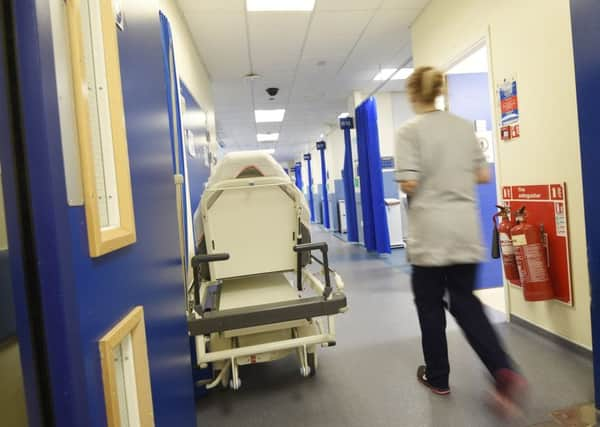A&E waiting times hit by surge in fall injuries after icy weather


The latest figures for the week ending December 17 show that 81.1 per cent of patients were seen and either admitted, transferred or discharged within four hours, falling significantly short of the Scottish Government’s 95 per cent target.
The figure represents a drop from 86.9 per cent the previous week, and is down from 90.2 per cent in the same week last year.
Advertisement
Hide AdAdvertisement
Hide AdHealth Secretary Shona Robison said A&E units were dealing with significant extra demand over the Christmas period.
The statistics show there were 29,054 attendances at emergency departments across Scotland during the week - the highest number since weekly reporting began in 2015.
Attendances were up 12 per cent on the previous week, and up 15 per cent on the same week last year, with much of the increase attributed to weather-related slips and trips and seasonal illness.
Much of the rise in demand came towards the end of the week.
Raigmore Hospital in Inverness and Aberdeen Royal Infirmary saw a 48 per cent and 42 per cent increase respectively in attendances between Thursday December 14 and Sunday 17 compared with the same few days in the previous week.
Meanwhile, Hairmyres Hospital in East Kilbride reported receiving one week’s worth of ice-related trauma demand in one day.
The Scottish Ambulance Service also recorded a 40 per cent increase in calls to deal with trauma injuries during the week ending December 17 and, and over the weekend of December 16 and 17, a 60 per cent increase in calls related to falls.
On a visit to Ninewells A&E in Dundee, Ms Robison said: “I’m here at Ninewells to say thank you to all NHS staff working this festive season who are giving patients the best possible care in the face of exceptional pressures.
Advertisement
Hide AdAdvertisement
Hide Ad“Despite record numbers of people attending Scotland’s A&E departments - up 3,200 or 12 per cent in just one week - A&E performance fell by a few percentage points.
“We are not complacent and are doing everything possible to improve that.
“Our additional £22.4 million to deal with pressures this year is being invested into additional clinical and non-clinical staff to create extra resilience and maintain weekend and festive period patient discharges, so that there is sufficient capacity across the system.”
David Chung, vice president of Royal College of Emergency Medicine (RCEM) Scotland said: “We have seen exceptional numbers of patients in the week before Christmas, which will undoubtedly affect how we are able to work through the festive period as well.
“RCEM is proud of the way those working in our emergency departments, and our other colleagues in health and social care, in their commitment and dedication over this festive period.”